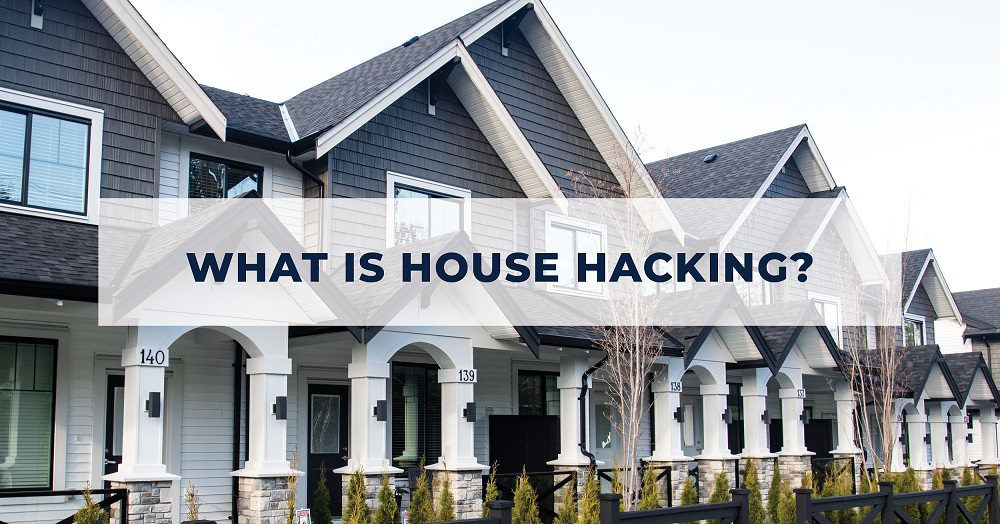
By Alena Kairys
Oct 14, 2022Everyone knows that computers can be hacked, but homes? It’s true—house hacking is a thing, but it has nothing to do with the internet or databases. More and more people are turning to house hacking to afford homeownership, but is it right for you?
What is House Hacking?
House hacking is an investment strategy where you buy a property to serve as your primary residence, with the intention of renting out part of it to subsidize your mortgage. You can even become a house hacker if you already own your home. The concept of house hacking isn’t exactly new, but it has recently become more popular among aspiring homeowners due to increasing housing costs.
Traditionally, house hacking involves buying a multifamily home (like a duplex) and renting out the other unit, but that’s not the only way you can get into house hacking. You can put individual rooms, entire floors, or accessory dwelling units (ADU) up for rent—there can be a lot of flexibility! Additionally, you can decide whether you want to host short or long-term renters.
The “hack” in house hacking stems from the idea that you can buy a home and make passive income from it without going through the more complex steps of purchasing a home outright as an investment property. When you buy an investment property that you don’t plan on living in, you’ll have fewer mortgage options available and usually, a larger down payment. With house hacking, your investment property is your primary residence, so you can take advantage of a conventional, FHA, or VA loan to finance your house. This method can make buying a home more affordable, especially for new homeowners.
Financial Benefits
Perhaps the most enticing part of house hacking is being able to significantly lower or even eliminate your monthly mortgage payment. The passive income generated from renting out your home will reduce your financial burden, saving you money over time. As a homeowner, you can reap all the benefits of homeownership, including property appreciation, certain tax deductions, and building home equity. In fact, building home equity with this investment strategy may be quicker than if you were the sole party making payments.
Things to Consider
Landlord Responsibilities
Homeownership means you no longer have a landlord, but house hacking means you’ll become one yourself. This type of responsibility is not for everyone. As the owner, you’ll be responsible for fixing and maintaining the property, or at least paying for repairs. The tenants you choose can make or break a house hacking venture (and your sanity), so it’s essential to vet and find candidates who are responsible and reputable. Still, you may have to have uncomfortable rent conversations with your tenants. You can hire a property manager to help with daily operations, though it will affect your total gains.
Local Limitations
Before you create a rental listing, make sure you’re allowed to rent out your house. If your neighborhood has an HOA, they may have guidelines about how you can use the property. If you’re thinking of renting out an ADU, such as a furnished basement, you need to check with your local zoning authorities, as ADUs must meet certain requirements for safety and livability.
Privacy
Just like having roommates in a rental, house hacking limits your privacy. Consider whether your lifestyle is compatible with sharing spaces with other people. Would having tenants cramp your style if you also live with a partner or have children? Of course, the amount of privacy also depends on how your home is set up; ADUs and multifamily properties will give you more privacy.
Cost Analysis
House hacking can be lucrative, but it isn’t a get-rich-quick scheme. Make sure to consider the financial impact of any investment. Location is always a key factor when buying a home, and if you’re hacking your house, it will affect rental demand and how much you can reasonably charge for rent. You can use rental listing sites to gauge how much to charge for rent in your area. If you’ve found a promising property, compare your estimated mortgage payments with the total estimated rent payments. Don’t forget to factor in cost of repairs! Understand that there may be periods of vacancy, so be sure you can still cover your mortgage if you’re not bringing in full rental income.
Be sure to get pre-approved and work with a lender and real estate agent who understand the concept of house hacking. Their knowledge will be invaluable when you’re considering properties and loan types. House hacking may not be for everyone, but it can be an accessible way to make homeownership possible.
If you have questions about home equity, contact one of our licensed Mortgage Loan Originators. If you’re ready to begin the home buying process, click here to get started!
These blogs are for informational purposes only. Make sure you understand the features associated with the loan program you choose, and that it meets your unique financial needs. Subject to Debt-to-Income and Underwriting requirements. This is not a credit decision or a commitment to lend. Eligibility is subject to completion of an application and verification of home ownership, occupancy, title, income, employment, credit, home value, collateral, and underwriting requirements. Not all programs are available in all areas. Offers may vary and are subject to change at any time without notice. Should you have any questions about the information provided, please contact us.